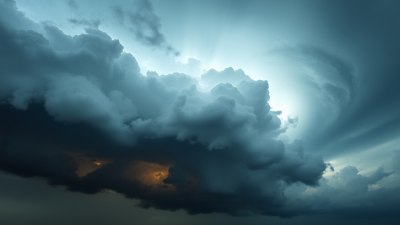Why Squirrels Are the Original Meteorologists
Discover how squirrels can predict weather patterns and their significance in nature's ecosystem.

This image was created with the assistance of Freepik
Squirrels, often considered simple creatures of the forest or urban parks, possess remarkable abilities that extend beyond their playful antics and acrobatic skills. These furry animals have often been regarded as weather predictors in many cultures, leading to the assertion that they are the original meteorologists.
Throughout history, various traditions have emerged surrounding animal behavior and weather forecasting, with squirrels being a prominent player in this folklore. This article explores the fascinating connection between squirrels and meteorological predictions, delving into the science behind their instincts and the factors influencing their behavior.
The Role of Squirrels in Ecosystems
Understanding why squirrels are seen as original meteorologists requires a brief overview of their role in ecosystems. Squirrels are primarily herbivorous and contribute significantly to forest ecology through seed dispersal. By burying seeds and nuts, they promote plant diversity and contribute to forest regeneration. This key ecological role ties into their behavioral patterns and the signs they exhibit, which often hint at upcoming weather changes.
Instincts and Behavioral Adaptations
Squirrels, like many other animals, rely heavily on their instincts to survive. They showcase a range of instinctual behaviors that are often interpreted as weather forecasters. For instance, the way squirrels prepare for winter can inform observers of potential cold weather. As the temperatures begin to drop, squirrels engage in frantic foraging, gathering and hoarding nuts and seeds. This behavior indicates an impending cold snap and highlights the connection between animal instincts and environmental changes.
The Science Behind Squirrel Behavior
Research has shown that squirrels can pick up on subtle shifts in their environment that may signal future weather patterns. Their keen sense of smell and acute observation skills allow them to detect changes in humidity, barometric pressure, and temperature. Studies suggest that squirrels can sense the signs of approaching storms, which may explain their increased activity before a weather event, as they seek to stockpile food and prepare for challenging conditions.
Preparing for Winter: An Indicator of Forthcoming Weather
The classic imagery of squirrels gathering nuts in autumn encapsulates a significant aspect of how they respond to anticipated weather changes. As temperatures begin to lower and days shorten, squirrels exhibit heightened behavior. They begin to gather more food than usual, often choosing food sources believed to have higher fat content. This behavior is often viewed as a predictive behavior that assists them in determining the severity of the upcoming winter season.
Squirrel Nests and Their Weather Indicators
Another factor that provides insight into the meteorological prowess of squirrels is their nesting habits. Squirrels are known to build nests in trees, which they use for shelter and warmth. The construction of these nests often correlates with weather predictions. For instance, squirrels may choose to build larger and denser nests if they anticipate a harsh winter, which serves as a practical adaptation to impending cold weather.
Myths and Legends Surrounding Squirrels
Various cultures have myths and legends that celebrate squirrels as weather predictors. Farmers and hunters have relied on these creatures to foretell the changing seasons. For example, it is said that if a squirrel’s tail is extra bushy, it may indicate a particularly snowy or cold winter ahead. Although anecdotal, these observations reflect a long-standing relationship between human culture and wildlife.
Other Animals with Predictive Powers
While squirrels are fascinating as original meteorologists, they are not alone in providing cues about the weather. Many animals exhibit behaviors that correlate with weather changes. Birds are often seen flying lower before storms, while certain insects, such as ants, may change their activity patterns in anticipation of rain. Each of these behaviors showcases the intricate connections between species and their environments.
The Importance of Animal Behavior in Weather Prediction
The study of animal behavior and its relationship with environmental changes has gained traction in recent years. Researchers are increasingly turning to wildlife observations to enhance traditional meteorological models. By documenting animal activity, scientists can create a broader picture of how the ecosystems respond to climate fluctuations, thereby improving the accuracy of forecasting methods.
Human Interpretation of Squirrel Behavior
Despite the scientific foundations of squirrel behavior, it is essential to recognize that human interpretation plays a critical role. While scientists can study the exact conditions leading to certain behaviors, folklore and anecdotal evidence often color public perception. Squirrel antics, such as engaging in frenetic movements prior to a storm, may be interpreted differently depending on cultural beliefs and personal experiences.
Future Directions in Research
The fascinating intersection of animal behavior and meteorology is ripe with opportunities for additional research. As climate change becomes more pronounced, understanding how wildlife adapts and reacts to shifting weather patterns is increasingly crucial. This body of research may not only shed light on animal behavior but could also yield valuable insights into ecosystem resilience amidst changing climates.
Squirrels in the Face of Changing Environments
In conclusion, while squirrels may be simple creatures as per common perception, their behaviors offer a glimpse into the remarkable ability of wildlife to adapt and respond to environmental cues. Whether through their foraging habits, nesting behaviors, or social interactions, squirrels indeed reveal a natural talent for interpreting the environment's signals. As such, they maintain their status as the original meteorologists, deserving of further study and appreciation as we strive to understand our ever-evolving planet.











